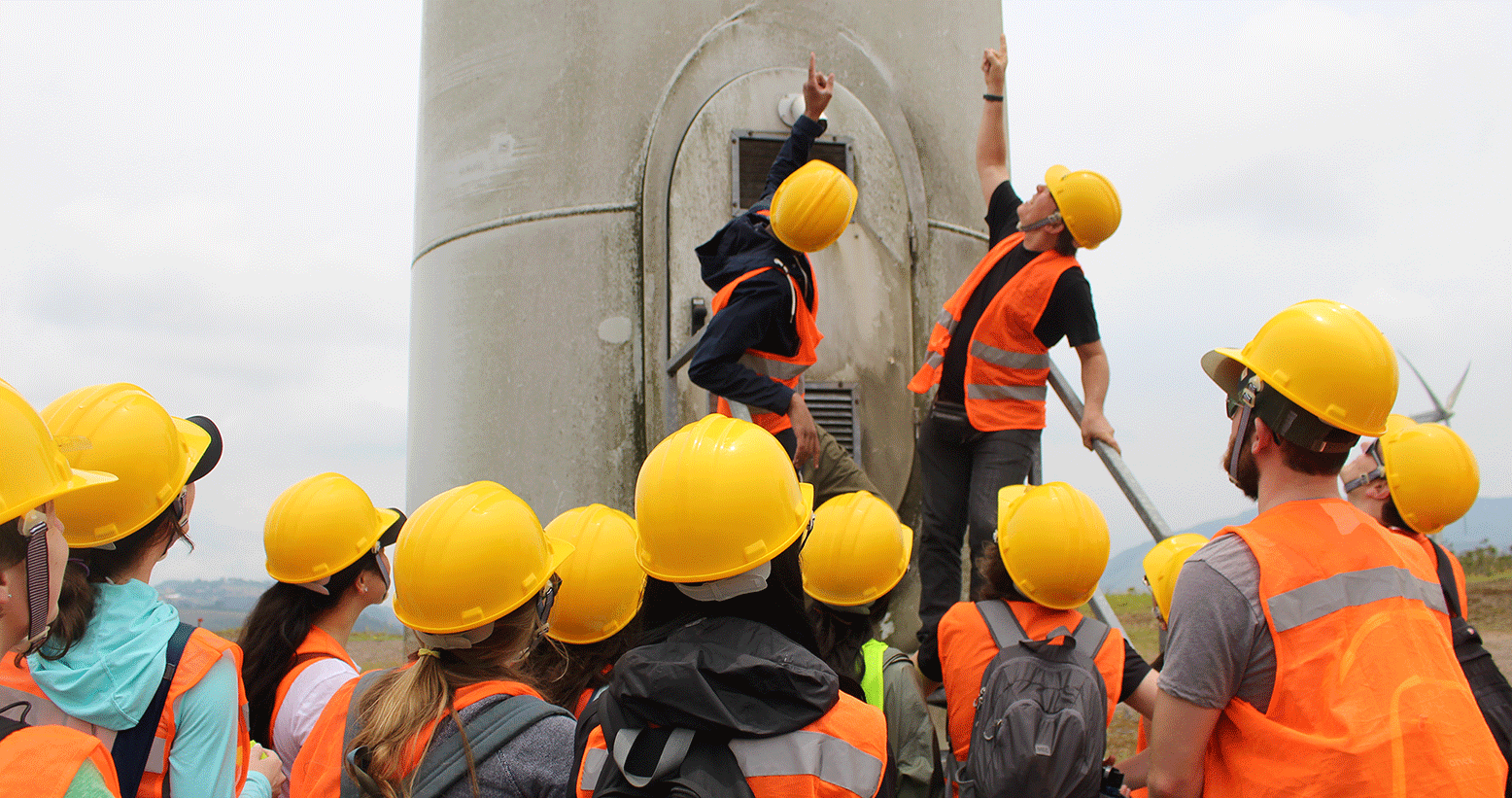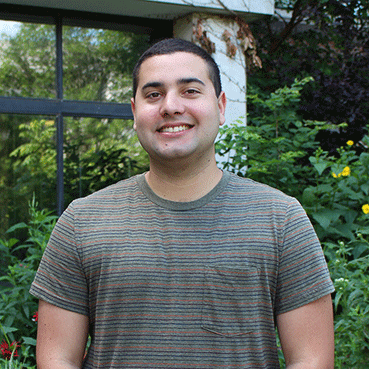 This blog is an archived post written by Joey during his 4th year in the Urban and Regional Environments stream. It was edited by Recruitment and Liaison Officer Alison Ozog.
This blog is an archived post written by Joey during his 4th year in the Urban and Regional Environments stream. It was edited by Recruitment and Liaison Officer Alison Ozog.
With graduation quickly approaching, I’m facing two options of what’s next: continue my studies and attain a Master’s degree or begin searching for a job in my field. Both options seem promising and would allow me to further develop my professional career.
On the Master’s end, I had to make this decision sooner than I expected as you often have to apply for graduate programs as early as December of the year before you want to start your studies. Unlike applying for the Bachelor’s, there’s also a lot of additional things you need to submit with an application like statements of interest and letters of recommendation. If you’re interested in knowing more about this, check out Graduate Studies at York or Master in Environmental Studies (MES).
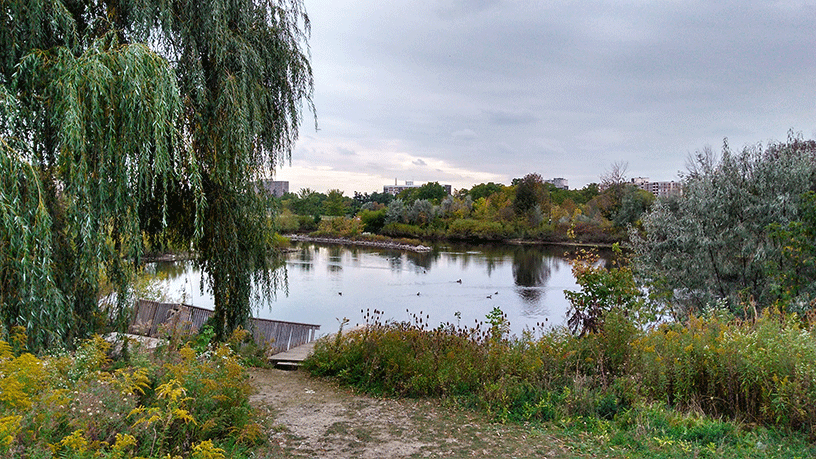
Even while exploring the Master’s option, I’m still looking into the job search as well. I’ve put a lot of time and effort into completing my Bachelor of Environmental Studies (BES) degree at York University with the hope that it will translate into attaining fulfilling and well-paid employment in my specific field. Even if I’m considering continuing on for more schooling, there’s no harm in exploring both academic and professional next steps.
With its many job opportunities, Toronto also has an incredibly competitive job market with no shortage of available talent coming out of its numerous academic institutions. Just knowing this can make it seem intimidating and challenging at times to compete in such an environment. However, with all that I’ve learned here at York, I want to assure you that my Environmental Studies degree will be a strong foundation for professional career development or for entering Grad school – or both.
A recent article in the ‘The Balance’ by author Mike Profita, titled “Top 9 Jobs for Environmental Studies/Science Majors”, outlines where Environmental Studies/Environmental Science graduates are successfully finding employment. I wanted to put this article to the test and see what the job market is really like for Environmental Studies students. To do this, I drew on Environmental Studies alumni who have successfully found employment in the nine positions outlined in the article:
- Environmental Consultant – Sophia Sestito – National Corporate Environmental Manager at EllisDon. From conducting risk assessments at the big stage, to facilitating the development of a site-specific Environmental Management Plans, to providing in house training, Sophia’s role with EllisDon requires her to have many projects on the go. Sophia valued the passion and open-mindedness she discovered while studying the environment at York and highlights that these are some of the qualities companies need when looking to improve their environmental stewardship. Learn more about Sophia’s path to her career in her alumni profile.
- Environmental Scientist – Brittanie Semper – Environmental Scientist at Environment Consulting Occupational Health (ECOH). Although an Environmental Studies program, the BES explores the environment comprehensively from all perspectives including the legal, political, sociological, and scientific. Students interested in studying topics such as avian ecology, habitat conservation, or other more technical topics such as Geographic Information Systems (GIS) will find many professors in Environmental Studies with a scientific background that can prepare them for more traditional natural science careers.
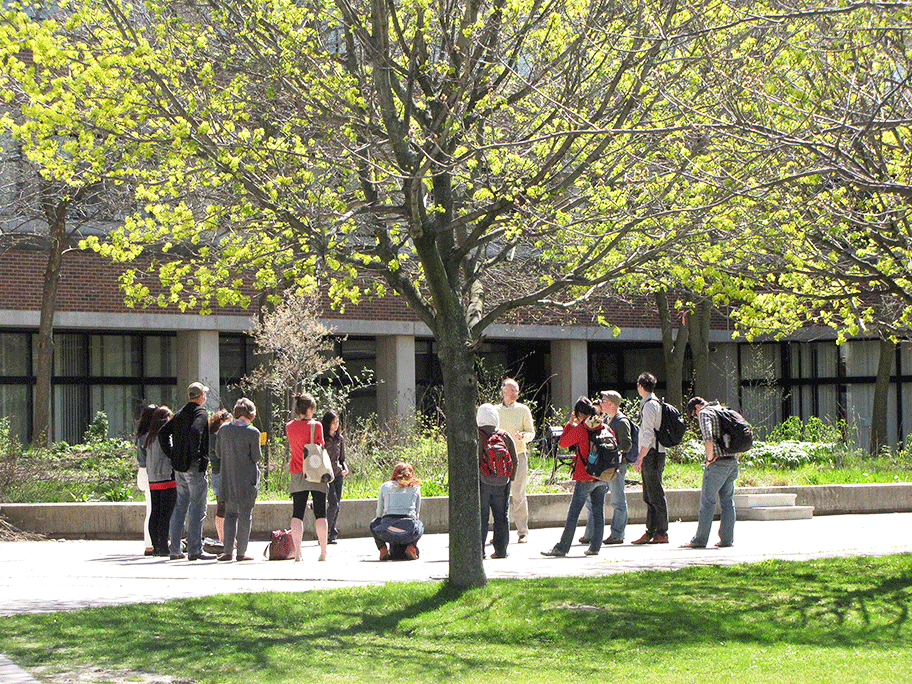 Environmental Educator – Sabrina Chiefari – Educator at a Regional Conservation Authority. Working on things such as community engagement, outdoor education, and environmental well-being, Sabrina benefitted from the Environmental Studies program learning to consider multiple factors of an issue and analyze situations from a variety of different perspectives. More on Sabrina’s journey is available in her alumni profile.
Environmental Educator – Sabrina Chiefari – Educator at a Regional Conservation Authority. Working on things such as community engagement, outdoor education, and environmental well-being, Sabrina benefitted from the Environmental Studies program learning to consider multiple factors of an issue and analyze situations from a variety of different perspectives. More on Sabrina’s journey is available in her alumni profile.- Public Relations Specialist – Kathryn McClellan – Environmental Stewardship Coordinator at King Township. Working for a smaller township, Kathryn is able to take advantage of the diverse skills she developed in the Environmental Studies program including creating development proposals to preserve natural land space, energy management, and guided hikes. Check out Kathryn’s alumni profile to learn about her exciting position.
- Environmental Attorney – David Donnelly – Principal at Donnelly Law. Many Environmental Studies students also have a passion for social justice and law. This type of environmental career would require further study to get your law degree. Many students also choose to explore the MES/JD program at York University which allows you to get your Master’s in Environmental Studies and Juris Doctor from Osgoode Hall Law School in just 4 years.
- Environmental Engineer –Katrina Gordon – Environmental Site Assessor at Watters Environmental Group Inc.
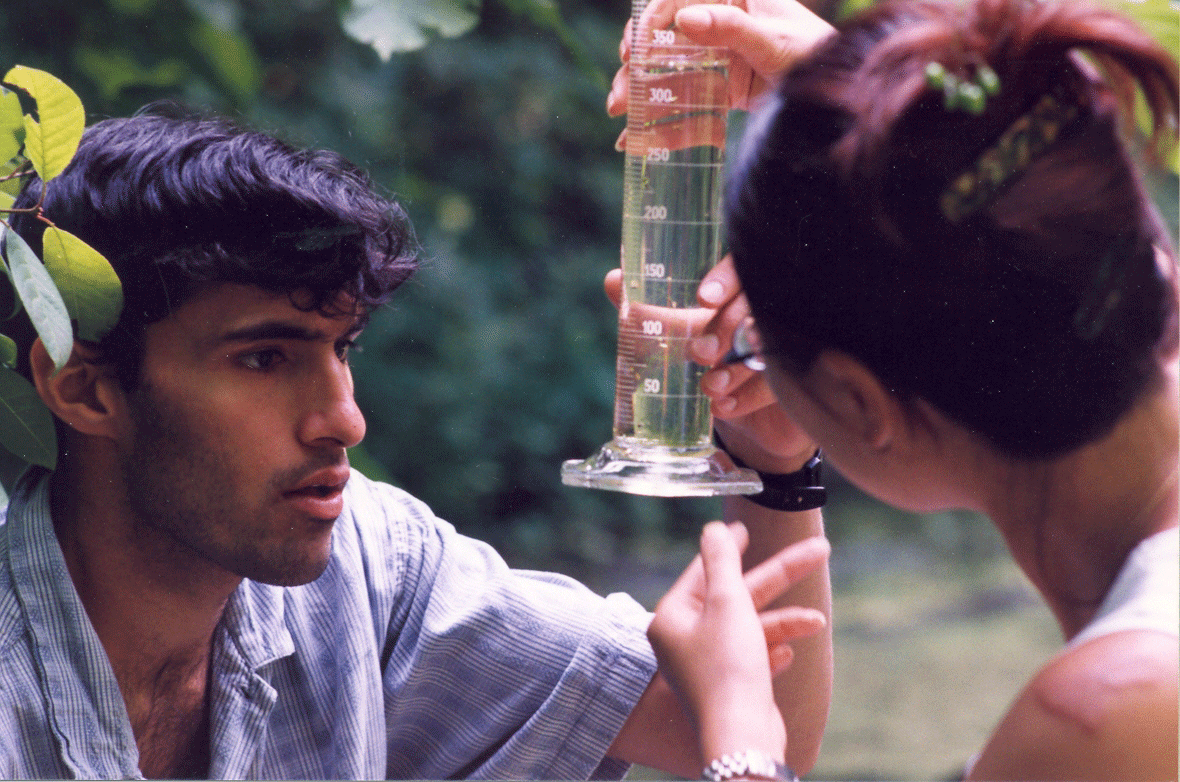 In her diverse role, Katrina looks at soil and groundwater remediation, testing, monitoring, reporting and problem-solving. She credits Environmental Studies at York for preparing her to think critically, work with others and have a global environmental perspective. You can learn more about Katrina’s role in her alumni profile.
In her diverse role, Katrina looks at soil and groundwater remediation, testing, monitoring, reporting and problem-solving. She credits Environmental Studies at York for preparing her to think critically, work with others and have a global environmental perspective. You can learn more about Katrina’s role in her alumni profile. - Sustainability Specialist – Tanya Roberts – Sustainability Professional. Studying the environment doesn’t mean you’ll only work in the public sector. One of the most popular fields right now is in business and the environment, particularly in relation to sustainability.
- Fundraiser – Sarah Pietrkiewicz – Community Engagement Coordinator – Alzheimer Society of Toronto. While some students are passionate about working in the for-profit world, many others are looking to give back working for Non-Governmental Organizations (NGOs) and Non-Profits. Luckily, the Environmental Studies degree prepares students for both. Sarah supports digital fundraising and production and now works to coordinate the Alzheimer Society of Toronto's communications, marketing, web presence, and also helps in the facilitation of online giving.
- Policy Analyst – Jose Hinterholzer Pino - Director of the Natural Reserves of Balam Kin and Balam-Kú, SEMARNATCAM (Ministry of the Environment and Natural Resources of the State of Campeche). Enjoying the fact that he could learn about the social and technical aspects of the environment, Jose’s BES degree lead him to a role where he can implement policy on a larger scale including addressing the conservation status of local animals and identifying new species. Learn more about Jose’s role in his alumni profile.
Although these nine jobs may have proven to be popular amongst Environmental Studies/Science graduates, they are not by any means the only careers that your BES degree will qualify you for. Environmental Studies graduates have established careers in many fields, including food services, the energy sector, as entrepreneurs pioneering the future in the cosmetics industry and in urban planning. If I ultimately decide to enter the job market following graduation, I now know that I’m qualified to work in many different positions as my qualifications are what employers are looking for.
